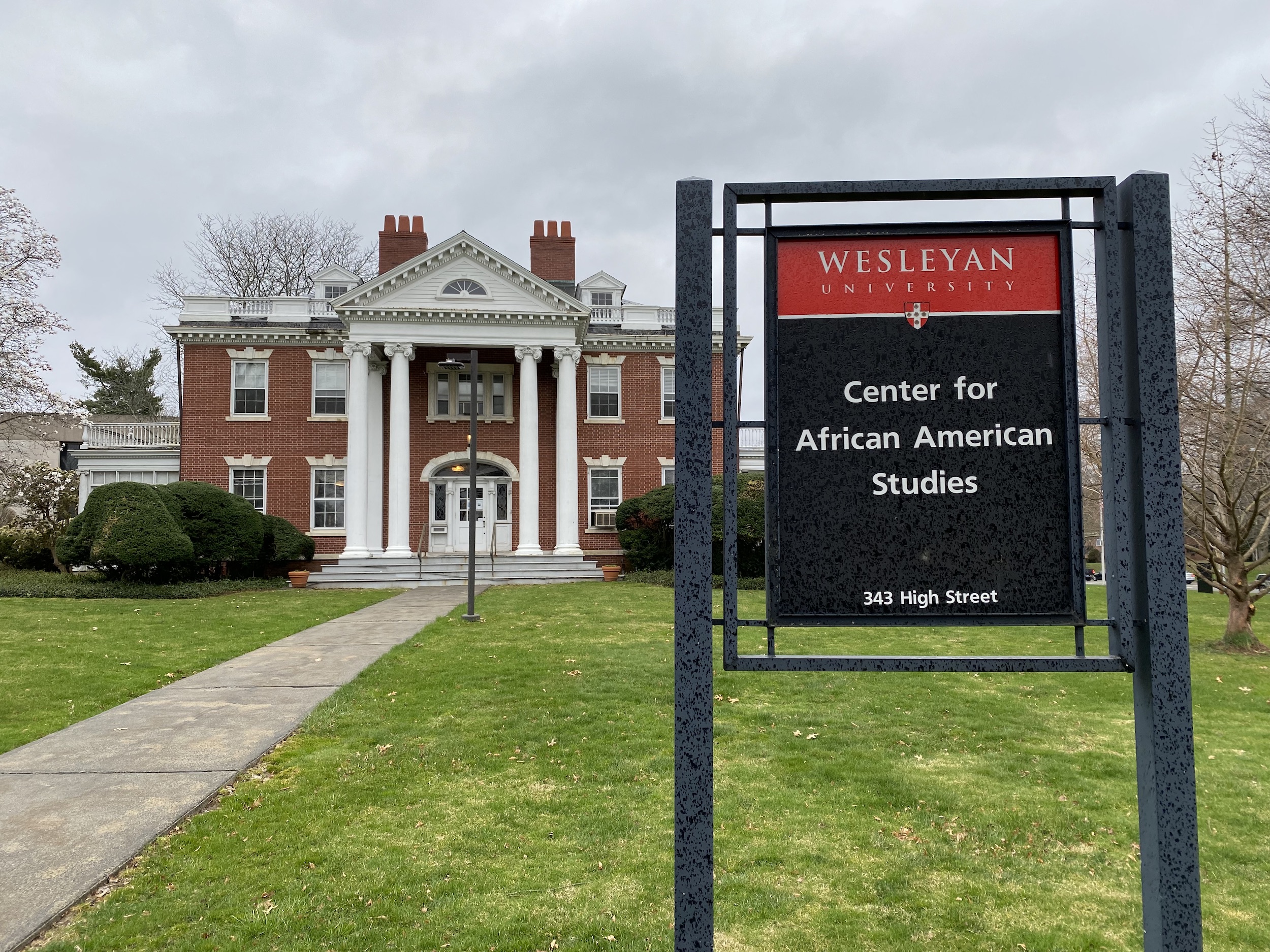
c/o Andrew Lu, Staff Photographer
On Thursday, March 31, the Africana Research Collective (ARC) and the Center for African American Studies (CAAS) hosted their first salon, an event that brought together students interested in African American Studies (AFAM). The event centered on literature, featuring student presentations of honor theses, poems, classwork, and even a piano performance, as well as a shared meal and engaging discussions.
“It was a way to just literally break bread and to build an intellectual community to re-energize the Center for African American Studies,” Assistant Professor of African American Studies Garry Bertholf said. “And it was really the students involved in the Africana Research Collective (ARC) that did most of the labor in terms of organizing the salon and making it happen.”
The ARC was started by a group of nine first-generation, low-income (FGLI) students, Black, Indigenous, students of color, and allies. The group works together to collect research on how the African diaspora intersects with a variety of subjects, including AFAM, Latin American Studies, American Studies, Philosophy, Economics, Education Studies, Molecular Biology and Biochemistry, pre-medicine study, and social justice.
“We are engaged in the study and research of Africana intellectual and cultural history,” ARC member Yohely Comprés ’24 said. “We are committed to exploring new and exciting ways to approach the study of Indigenous and African descended peoples throughout the world, including the Black Atlantic, the circum-Caribbean, the Global South, and hemispheric Americas.”
Comprés was inspired to create the ARC after seeing the gaps in the University’s AFAM curriculum, and recruited eight other students to help.
“African American studies does not think about the rest of the Africana world; it’s mainly focused on the United States,” Comprés said. “What all nine of us think about African American studies and how it could be expanded to the rest of the world is a main inspiration.”
The idea for the ARC emerged when Comprés and another ARC member, Edmund Josef Jurado ’24, were first-year students, but initial progress was halted by the COVID-19 pandemic. With the lessening of COVID-19 restrictions worldwide, the two are aiming to study abroad this summer and get a better picture of the Africana world.
“The main goal for us right now is to visit public universities in the circum-Caribbean and see how they’re understanding the African diaspora in different ways than we are doing here in the United States,” Comprés said. “We want to go to Jamaica and the Dominican Republic, two places that have been colonized by two different countries, speak two different languages, two completely different cultures and understandings of Blackness.”
After conducting this research, the two hope to share their findings with the broader University community and to ensure that this will be not a one-time trip, but an annual study abroad opportunity for interested students.
“One of our objectives is to take those histories and build a digital archive that we can then bring to Wesleyan,” Jurado said.
Comprés and Jurado have high aspirations for its future impact, especially with potential changes to the University’s curriculum.
“Thinking about the intersections between American studies, African American studies, and Latin-American Studies, [they] shouldn’t be distinct majors,” Jurado said. “These are histories with very deep intersections. One of our goals would be to find a way to acknowledge that.”
While Jurado and Comprés plan to do work abroad, they also want to expand their impact on the University community through further collaboration with the CAAS.
“We want to see [the salon] as a revival [of] CAAS,” Jurado said. “This is a space where all ideas are welcomed, and we’re really interested in building this intellectual community.”
The ARC also wants to host another salon before the end of the semester to touch on other aspects of the African diaspora and hopes to tie in different academic fields as well.
“I think in the future, we’re going to try to incorporate other disciplines as well,” Jurado said. “[Including] people from other majors is something we’ve talked about to get a more well-rounded approach to building this intellectual community.”
Bertholf shares the ARC’s goal of revitalizing the CAAS and bringing in a variety of academic backgrounds, and especially hopes to engage with students from many backgrounds.
“I think that the Center for African-American Studies and the African-American Studies Department could become a home for all sorts of students and intellectual projects,” Bertholf said. “We’re definitely interested in an Africana that recruits not just students of different academic backgrounds or students majoring or minoring in different disciplines, but also students from different racial and cultural backgrounds.”
Moving forward, the ARC aims to focus on recruitment and expanding the salon initiative, and encourages all interested students to get in touch.
Caleb Henning can be reached at chenning@wesleyan.edu.